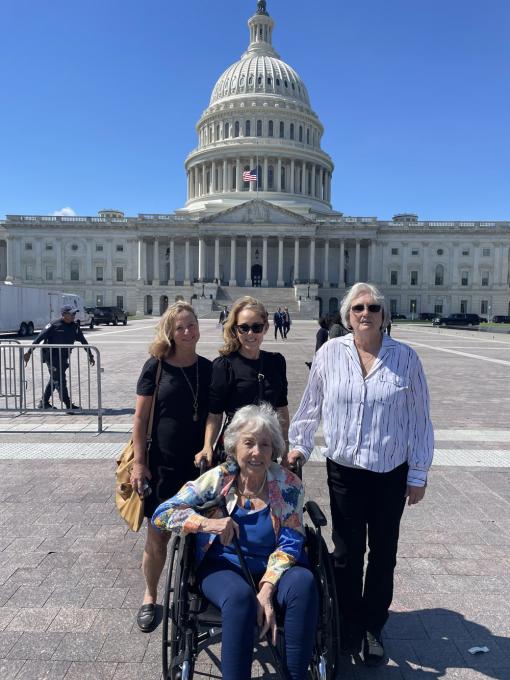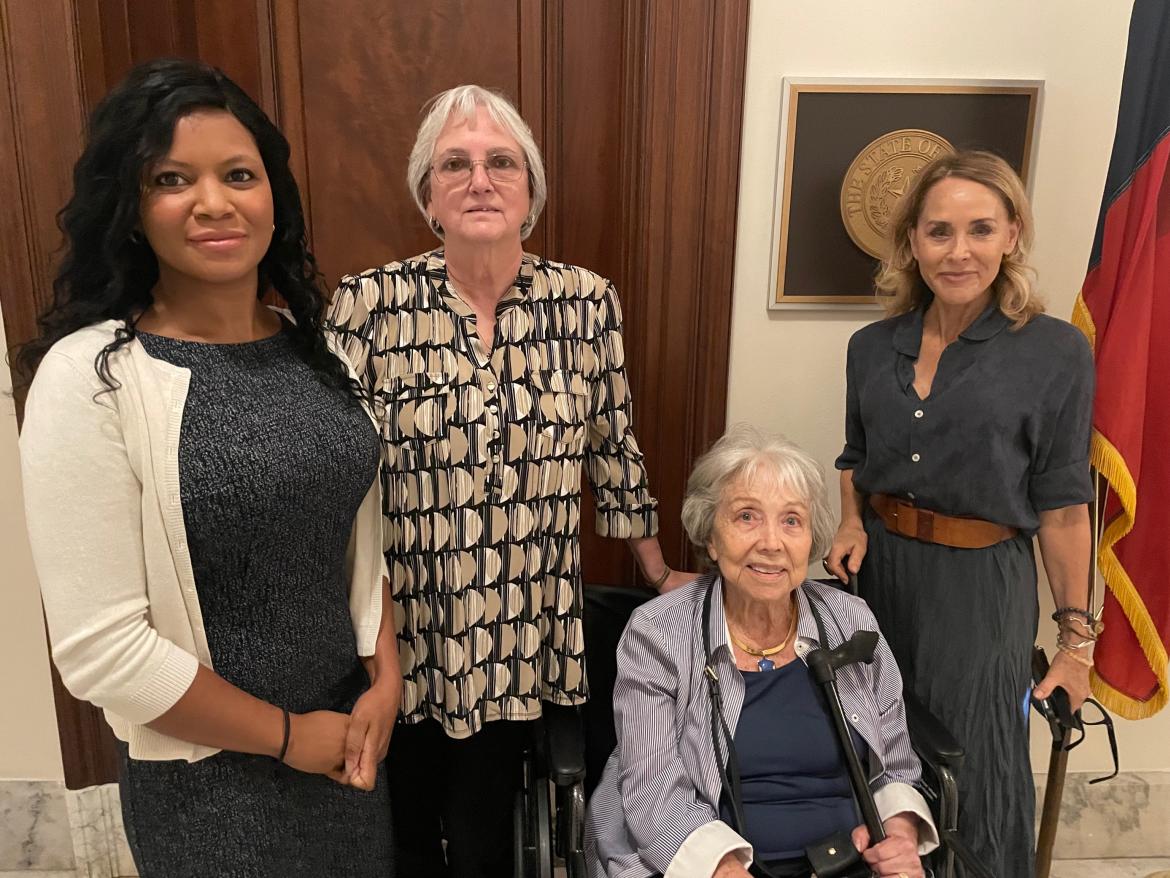From 1945 to 1962, the U.S. government conducted more than 200 above-ground nuclear tests. Radiation spread for thousands of miles.
Surrounding communities were not warned of the danger. Those exposed to nuclear fallout are still dealing with the deadly consequences of these detonations today. Few have been compensated.
Congress passed the Radiation Exposure Compensation Act (RECA) in 1990 to help victims of nuclear testing and uranium mining. But victims, known as “downwinders,” in highly irradiated places like Idaho, Montana, Colorado, New Mexico, and Guam have never been able to apply for this critical support.
Thanks to the persistent advocacy of downwinders and their allies— including FCNL advocates —we are beginning to see some progress. Congress renewed the existing RECA program earlier this year, ensuring that it would continue to be available to those currently covered by the law. Then, on Sept. 8, a top federal official publicly acknowledged the government’s role in exposing thousands of New Mexico residents to cancer-causing radiation for the first time.
Last week, FCNL’s nuclear disarmament and Pentagon spending team—Allen Hester and Vlad Salas Moreno—accompanied victims of nuclear testing as they met with lawmakers on Capitol Hill. Together they called on Congress to extend and expand RECA.
The RECA Amendments Act (H.R. 5338) would expand eligibility to more impacted people and extend the program for 19 years. It would be a significant step toward acknowledging and redressing the full scope of harm caused by U.S. nuclear testing and uranium mining. For people with radiation-related cancers, this compensation can make the difference in getting the medical care they need.
Frontline communities are making their voices heard loud and clear. We must fulfill our commitment to the downwinders, uranium workers, and atomic veterans whose health was sacrificed decades ago for our government’s nuclear weapons program.


